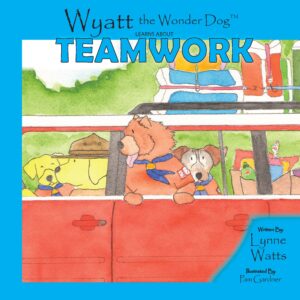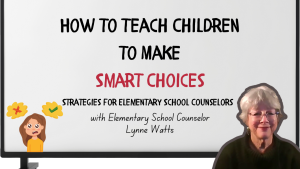Smart Choices Start Early: How to Teach Elementary Students Good Decision-Making Skills
Helping children learn how to make good decisions is one of the most powerful life skills elementary school counselors can teach. Decision-making lessons not only build confidence but also lay the foundation for moral character, critical thinking, and personal responsibility. Elementary students make decisions every day—from choosing friends to deciding whether to follow the rules or tell the truth. The earlier children learn how to think through their choices, the more likely they are to make responsible, ethical decisions later in life.
Decision-making lessons help students:
-
Build confidence in their ability to solve problems.
-
Recognize the connection between actions and consequences.
-
Strengthen moral character and empathy for others.
-
Develop internal motivation rather than relying solely on external rules or authority.
Key Concepts for Teaching Good Decision Making
1. Identify What a Role Model Would Do
Encourage students to think about how someone they admire—a parent, teacher, or even a favorite story character—would handle a tough situation.
Ask questions like:
-
“What would a good friend do in this situation?”
-
“How would your teacher or a kind leader respond?”
This helps children think beyond impulsive reactions and consider positive examples of behavior.
2. Identify Values and Link Good Behaviors to Moral Character
Students often know what they’re supposed to do, but not why it matters. Counselors can guide discussions around core values such as honesty, kindness, respect, and fairness.
Connect these values to real-world behavior:
-
“Being honest builds trust.”
-
“Kindness makes others feel safe and cared for.”
-
“Respecting others shows good character.”
By linking good choices to values, children learn that character is built through consistent, value-driven decisions—not just by following rules.
3. Develop Critical Thinking by Emphasizing Values Over Rules
While rules are important, focusing too much on them can lead to “rule following” rather than true understanding. Instead, teach students to evaluate decisions based on values.
For example:
-
A student might not get caught breaking a rule—but is the choice still fair or honest?
-
How would the decision make them feel about themselves later?
Encouraging values-based reflection helps children internalize ethical thinking rather than relying on external enforcement.
Typical Difficult Decisions for Elementary Students
Counselors can prepare students by discussing common real-life dilemmas they may face, such as:
-
Whether to tell the truth when it could get someone in trouble.
-
Choosing to include or exclude a classmate at recess.
-
Deciding whether to share materials or keep them for themselves.
-
Handling peer pressure to break rules or make fun of others.
-
Balancing schoolwork, play, and responsibilities at home.
These examples help normalize decision-making challenges and give students the language to discuss their thought process.
Strategies Counselors Can Use
-
Role-Playing Scenarios – Let students act out both good and poor decisions, then discuss the outcomes.
-
Decision-Making Models – Introduce a simple process such as:
-
Stop and think
-
Consider choices
-
Weigh consequences
-
Choose the best option
-
Reflect on the result
-
-
Use Stories and Books – Many children’s stories highlight moral choices. Discuss what each character could have done differently and why.
-
Decision Journals or Reflection Sheets – Encourage students to write about times they made a choice they’re proud of (or wish they could change).
-
Model Good Decision Making – As counselors, demonstrate how you think through your own choices and explain your reasoning out loud.
Teaching decision-making is not just about helping children follow the rules—it’s about guiding them to think critically, live by their values, and build lasting moral character. When students learn to ask, “What would a role model do?” or “Which choice reflects my values?”, they begin to develop the lifelong skill of making choices they can be proud of.
Wyatt the Wonder Dog
Learns about Teamwork

Camping with his Boy Scout Troop is exciting and fun… until Max takes a serious fall while hiking. When Wyatt and the rest of the Scouts use their emergency training to get Max safely out of the woods, they learn the value of teamwork and the power of community to achieve big goals.
Wyatt the Wonder Dog Learns about Teamwork is another great example of helping kids improve their social skills. It teaches kids the power of working together and how much better we are when we work as a community.
~Melissa Toren Hrin, Professional School Counselor, Beverly Cleary School, Portland, OR

